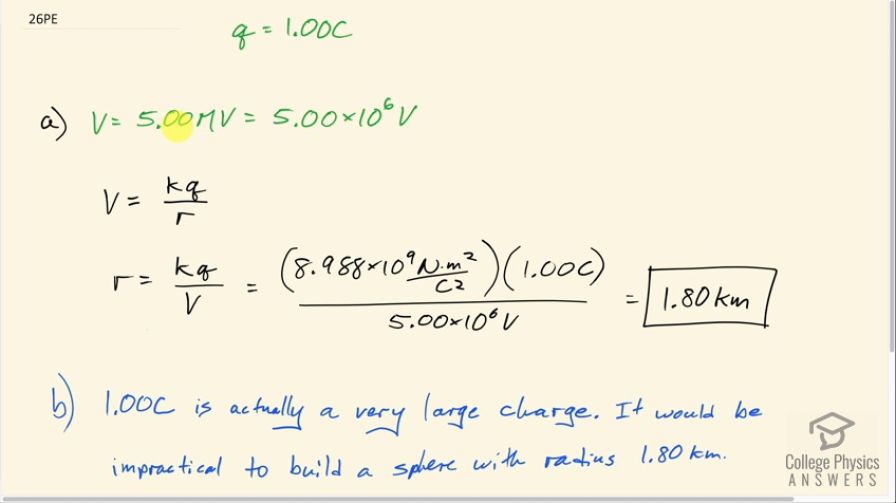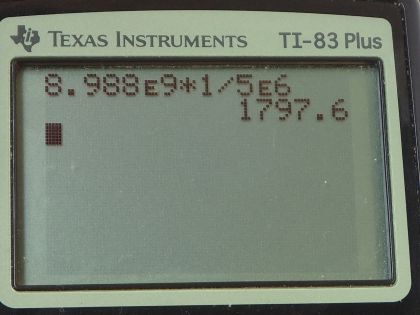Question
(a) A sphere has a surface uniformly charged with 1.00 C. At what distance from its center is the potential 5.00 MV? (b) What does your answer imply about the practical aspect of isolating such a large charge?
Final Answer
- 1.00 C is actually a very large charge. It would be impractical to build a sphere with radius 1.80 km.
Solution video
OpenStax College Physics, Chapter 19, Problem 26 (Problems & Exercises)

vote with a rating of
votes with an average rating of
.
Calculator Screenshots
Video Transcript
This is College Physics Answers with Shaun Dychko. Suppose a sphere has a uniform distribution of charge of 1.00 coulomb and the voltage is 5.00 megavolts, at what distance would this charge have this voltage? So the potential from a point charge is Coulomb's constant times q divided by the distance so we can solve for the distance by multiplying both sides by r over V. So the distance is Coulomb's constant times the charge divided by the potential and that's 8.988 times 10 to the 9 times 1.00 coulomb divided by 5.00 times 10 to the 6 volts and that's 1.80 kilometers and so that tells us that this 1.00 coulomb of charge even though it's only the number 1, it is actually a very large number when you are talking about coulombs and it would be impractical to build a sphere with this large of a radius. So there we go!
